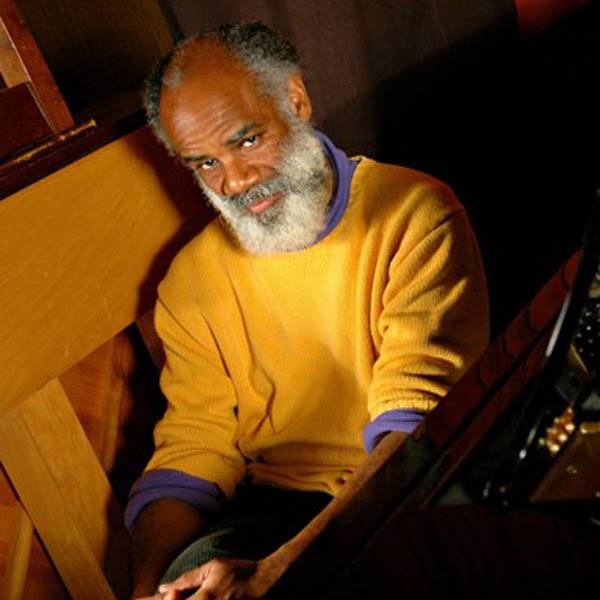This Thursday, as part of a month-long collaboration between the Krannert Center for the Performing Arts and the Illinois School of Music, Krannert’s Foellinger Great Hall will be home to an evening of music titled Sonic Illinois: The Black Composer Speaks. The Sonic Illinois series is intended to celebrate “the enormous diversity of today’s contemporary music scene” in honor of the university’s 150th anniversary, and the line-up for The Black Composer Speaks reflects that commitment.
The evening’s program was designed by the Fulcrum Point New Music Project, a Chicago organization dedicated to championing and commissioning innovative contemporary classical music. Fulcrum Point founder and artistic director Stephen Burns describes the event as an “adventure through the creative landscape of contemporary African-American concert music” that will highlight, through the inclusion of three generations of composers, a variety of musical aesthetics.
(Fulcrum Point New Music Project pictured below)
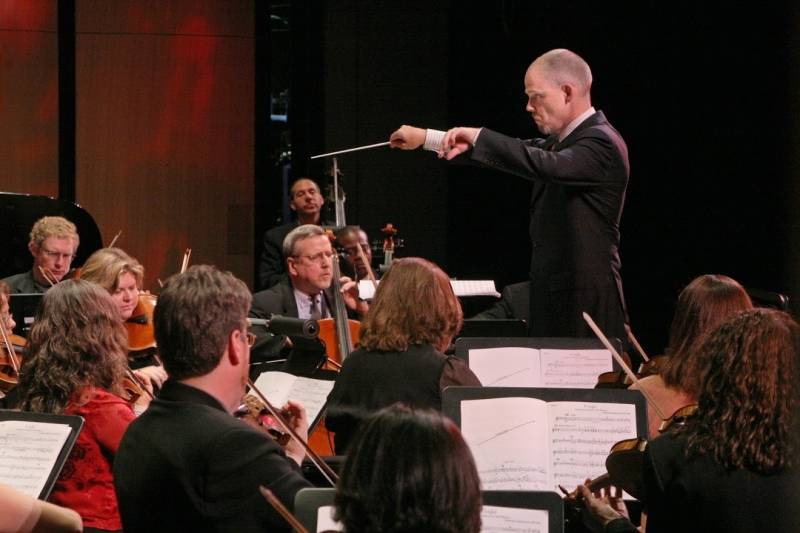
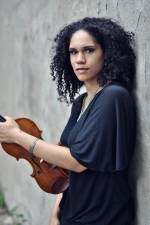
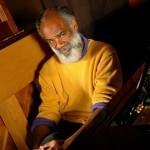 After beginning with pieces by composers Alvin Singleton, Olly Wilson, Jessie Montgomery, and Jeffrey Mumford, The Black Composer Speaks will feature the world premiere of Chicago-based composer Tomeka Reid’s “Present Awareness” and will then conclude with free-jazz improv led by Kahil El’Zabar and the Ethnic Heritage Ensemble. The Ethnic Heritage Ensemble has existed in various configurations for over 40 years and was formed by El’Zabar with the intent of combining African-American musical styles with traditional African rhythms and influences.
After beginning with pieces by composers Alvin Singleton, Olly Wilson, Jessie Montgomery, and Jeffrey Mumford, The Black Composer Speaks will feature the world premiere of Chicago-based composer Tomeka Reid’s “Present Awareness” and will then conclude with free-jazz improv led by Kahil El’Zabar and the Ethnic Heritage Ensemble. The Ethnic Heritage Ensemble has existed in various configurations for over 40 years and was formed by El’Zabar with the intent of combining African-American musical styles with traditional African rhythms and influences.
(Pictured left, Montgomery ; pictured right, Mumford. El’Zabar pictured below.)
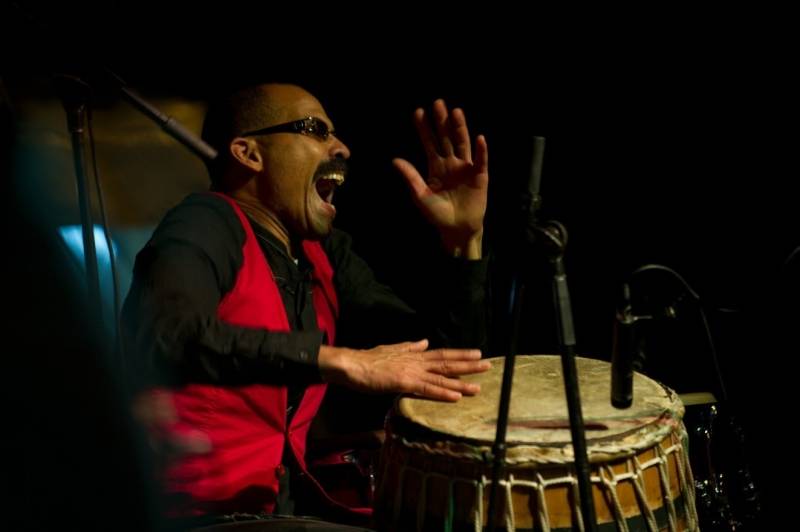
Prior to this week’s event, Smile Politely chatted with Tomeka Reid about her career and the inspiration behind “Present Awareness”. The Chicago-based Reid is an accomplished cellist who has performed with a variety of musical ensembles and who specializes in compositions with a strong improvisatory or experimental element. As well as being an ABD doctoral candidate at the University of Illinois School of Music, she has been an educator herself, co-directing the strings program at the University of Chicago’s Laboratory School for seven years.
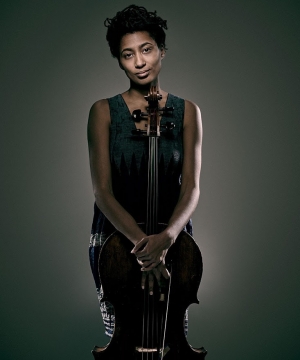 Reid’s musical accomplishments have drawn high praise from a number of critics. In 2015 The New York Times’ Ben Ratliff described her as “one of the great energies of the past year in jazz,” and that same year The Chicago Tribune named her “Chicagoan of the Year in Jazz.” The Tribune’s music critic Howard Reich raved that “Reid’s sonorous tone and novel techniques on cello, open-eared sensibility as composer and inspirational stature as conductor rejuvenate our notions of what jazz is and can be.” Krannert’s program notes describe Reid’s music as representing where “tradition meets innovation.”
Reid’s musical accomplishments have drawn high praise from a number of critics. In 2015 The New York Times’ Ben Ratliff described her as “one of the great energies of the past year in jazz,” and that same year The Chicago Tribune named her “Chicagoan of the Year in Jazz.” The Tribune’s music critic Howard Reich raved that “Reid’s sonorous tone and novel techniques on cello, open-eared sensibility as composer and inspirational stature as conductor rejuvenate our notions of what jazz is and can be.” Krannert’s program notes describe Reid’s music as representing where “tradition meets innovation.”
SP: What can you tell us about “Present Awareness”, the work you’ll be premiering at the event?
Reid: The piece relies heavily on ostinatos, along with composed sections and moments for improvisation. There are 3 sections entitled: “Present Awareness”, “The Divine” and “Radical Hope”. I think many of us are searching for ways to deal with what’s going on in our world currently. For many, things have been challenging for a long time and for many others, this election, for example, seems like a huge wake up call. People are really riled up and hopefully are more awake to some of the injustices many others have been feeling for a long time. This sentiment reminded me of a statement I read a while back that said something like you can’t live above your present level of awareness.
SP: What inspired you to write it?
Reid: What inspired me to write the piece is that personally, I have been struggling, trying to make sense of what’s been going on while at the same time traveling and having the fortunate opportunity to make and share music. I really feel lucky that I have music in my life and I try to keep up-beat but sometimes, when you read or hear the news you can sometimes feel a little lost and hopeless. I thought about that a lot when I was writing, remembering the need to feel grateful for family and friends and life in general and to keep focused on following my dreams.
SP: When did you first start dabbling in composing music, and how did you develop your particular musical style?
Reid: I actually started composing when I was in elementary school but I didn’t really know how to notate music and my keyboard only displayed numbers so I have a lot of sheet music with numbers written on them but unfortunately I don’t know how they sound because there is no rhythm indicated.
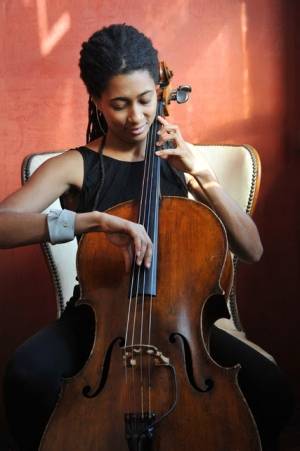 SP: What initially drew you to the cello as your primary instrument?
SP: What initially drew you to the cello as your primary instrument?
Reid: I chose the cello while attending a public school. I wasn’t familiar with the instrument but since many of the other girls were picking the flute and violin, a friend and I thought it would be cooler to pick something big like the cello.
SP: When you compose, do you do so with any particular audience in mind?
Reid: No.
SP: What excited you most about being a part of The Black Composer Speaks?
Reid: It was nice to be asked to participate on the program. I’ve felt really fortunate to be given a few opportunities recently to write pieces for various ensembles and I hope to do more in the future.
Sonic Illinois: The Black Composer Speaks begins at 7:30 PM on Thursday, February 9th in the Foellinger Great Hall at the Krannert Center for the Performing Arts. Tickets are $34 (or $29 for seniors, $15 for students, $10 for University of Illinois students and youth) and can be purchased from the Krannert Box Office by calling 1-800-KCPATIX or online.
Ticket holders are additionally invited to a pre-show conversation beginning at 6:45 between Stephen Burns, Kahil El’Zabar, Jeffrey Mumford and Seth Parker Woods, the Fulcrum Project’s Curator of Inclusion and Discoveries. The conversation will also take place in the Foellinger Great Hall.








